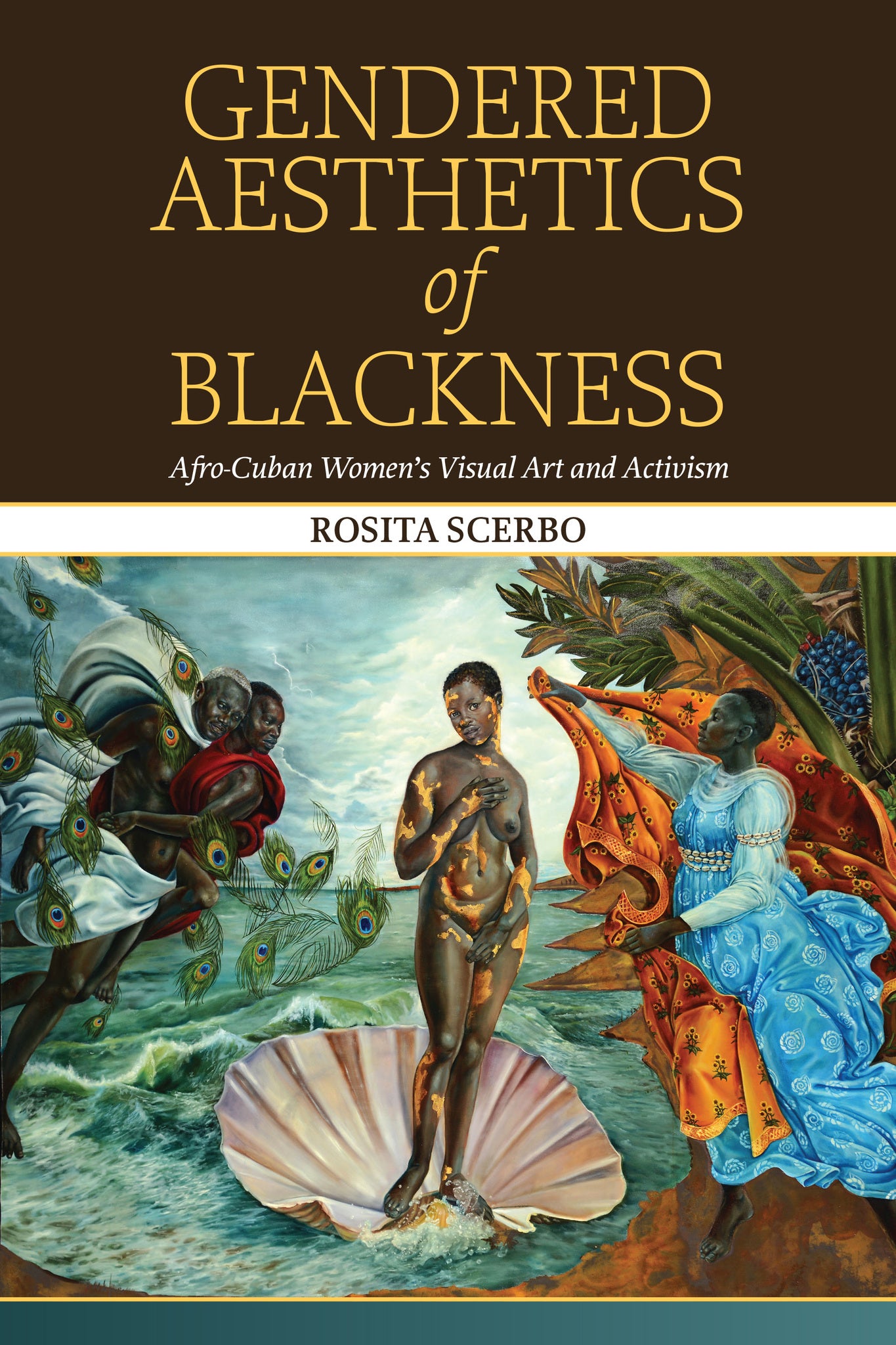We're sorry. An error has occurred
Please cancel or retry.
Gendered Aesthetics of Blackness

Some error occured while loading the Quick View. Please close the Quick View and try reloading the page.
- Format:
-
02 January 2026

Explores how Afro-Cuban women's visual art challenges dominant narratives of race, gender, and identity.
Gendered Aesthetics of Blackness delves deeply into the visual artistry and activism of Afro-Cuban women in Cuba and the United States. Influential in their communities yet overlooked in the mainstream art world and academic discourse, Harmonia Rosales, María Magdalena Campos-Pons, Belkis Ayón, and Susana Pilar practice what Rosita Scerbo calls "Decolonial AfroARTivism." These women use their art to challenge and disrupt dominant narratives, reclaim their identities and cultural heritage, and advocate for social justice. In centering their voices and meticulously analyzing their works, Scerbo not only enriches our understanding of Afro-Cuban visual culture but also pushes the boundaries of research. Groundbreaking in its decolonial approach and form, Gendered Aesthetics of Blackness engages a wide swath of sources and includes two interviews, with Rosales and with curator and popular educator Diarenis Calderon Tartabull.


"Gendered Aesthetics of Blackness models a strong decolonial practice. Highlighting Afro-Cuban female artists' methodological strategies and processes, Rosita Scerbo demonstrates their purposeful acts of activism and resistance. While attending to the nuances of geography, displacement, memory, and identity in their lives and work, Scerbo also draws important connections between artists on the island and in the diaspora, creating a rich transnational dialogue." — Lesley Feracho, author of Linking the Americas: Race, Hybrid Discourses, and the Reformulation of Feminine Identity
"An essential contribution to Latin American and Caribbean studies, Latinx studies, visual art, and cultural studies. Gendered Aesthetics of Blackness sheds light on and amplifies the work of understudied and underrepresented artists from the intersectional standpoint of gender and race. Rosita Scerbo sets a new precedent for how decolonial academic research can be done." — Anastasia Valecce, author of Neorrealismo y cine en Cuba: Historia y discurso en torno a la primera polémica de la Revolución, 1951–1962
List of Illustrations
Acknowledgments
Introduction Afro-Cuban Women as Bridges Between Worlds, Custodians of the Past, and Weavers of Alternative Futures
1. Tracing Black Identity and Afro-feminism in the Cuban Historical Context
2. Black Femininity Reimagined: Bridging AfroARTivism and Black Decolonial Aesthetics in the Visionary Artistry of Harmonia Rosales
3. Decolonizing Trans-Generational Memories of Slavery, Spirituality, and Exile: The Multicultural Artistic World of María Magdalena Campos-Pons
4. Susana Pilar's Self-Portrayal of Black Womanhood: A Visual Chronicle of Diasporic Femininity, the Trauma of Separation, and the Legacy of Enslavement
5. Unveiling Symbolic Silence: Cultural Syncretism and Archetypal Allegory in Belkis Ayón's Visual Expression
6. Empowering Through Art, Shaping Cultural Narratives, and Celebrating Afro-Cuban Heritage: An Interview with Harmonia Rosales
7. Transcending Boundaries: Art, Activism, and Afro-Cuban Identity: An Interview with Diarenis Calderón Tartabull
Conclusion Resonating Echoes: Toward a Liberated Aesthetic Future
Notes
Bibliography
Index



